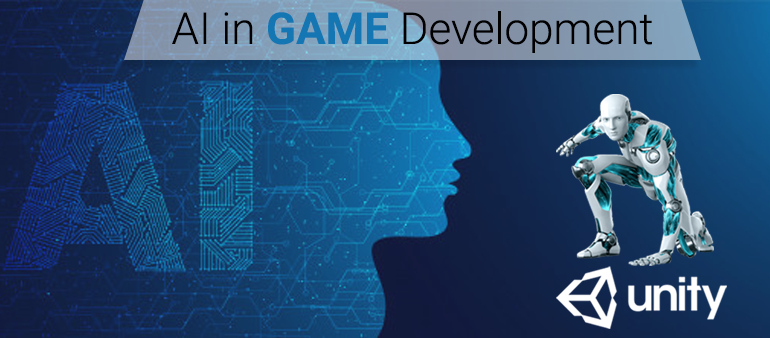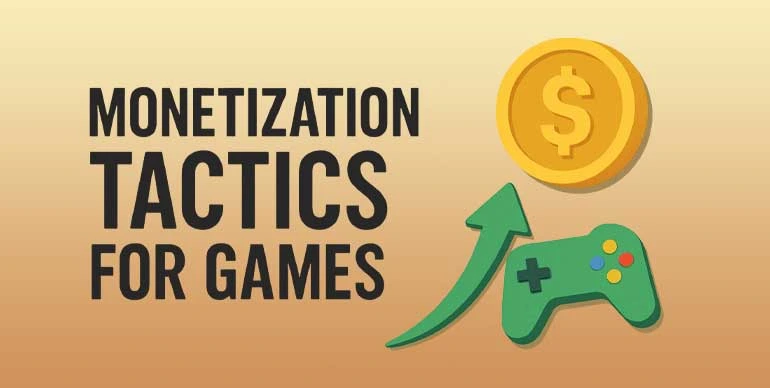AI has been a part of video games for a long time. From the rise of Super Mario to Atari’s most popular game DOTA 2, which is a popular choice for all professional players at a world stage, AI has played a significant role in their development.
What we see in video games is just a fraction of what AI is currently. It is not that AI hasn’t evolved to the desired level, but then the game designers have been holding themselves back from using AI to their true potential. Many game developers are hesitant towards building advanced AI into their games as they fear losing control over the user experience.
Let’s assume you pick up a new game and start playing it, would you like to get defeated over and over again? Nope, right. Video game players want to engage with something that is designed as per their intellectual capacity so that they can learn and improve over time. Artificial intelligence game developers don't intend to create an unbeatable environment for the player, but to maximize the participation of players over long time periods.
The AI mostly falls on two factors that are pathfinding and finite state machines. Pathfinding is how to get from point A to point B in the simplest way possible. A finite state machine is where a non-playing character can be in different possible states and move between them.
Story of AI till now
There is a vast difference between AI used in general and the AI used in video games. The AI designed to play a game at a superhuman level is developed a lot differently. In 1997 IBM’s DeepBlue system beat, the Russian Chess champion Gary Kasparov and AI, has come a long way since then.
Google bought DeepMind in 2014 for more than 500 million dollars, Facebook has its own AI research division, and there is also Elon Musk’s OpenAI company that works on AI research. The game development companies today are focusing on teaching the software on how to play different games; these include Chinese games such as Go and classic advanced games such as Dota 2.
The main focus behind developing the AI is not to provide dynamic and realistic game experience but to push the boundaries of software intelligence to the most extreme. The goal is that by providing the software in the gaming environment, we can understand how the machines adapt to more complex tasks and execute them.
Today most modern edge realistic games don’t revolve advanced AI but instead create a complex environment where the results are unexpected and take place in random order. There are also instances from viral clips of video games that indicate that there is a big possibility that one player experiences a totally different thing compared to the other player. This kind of AI builds a real-life system but doesn’t result in groundbreaking outcomes in game development.
Data Analysis and AI
AI is growing at a rapid rate, not only in the virtual gaming industry but also across all the other technical fields in the existing sectors. The software developers should prepare themselves to work with machine learning to develop AI-enabled software tools.
Consumers are now very tech-savvy, and they have access to a lot of information at their fingertips. Due to this, the game developers now can’t rely on old methods and game development principles; there is a need for them to step up their game. Machine learning plays a huge part in AI, and soon, it will become a gold standard to develop industry-level software designs.
Current role of AI in video games
In all the video games, the AI is used to enhance the user experience of the player. Machine learning uses all the accumulated data to create a more realistic and immersing environment in the video game. But to achieve this, the AI needs not few but an abundance of information. Data is a sensitive property, and it just can’t be handed over to anyone. This is the reason why machine learning hasn’t been developed industry-wide yet despite its endless possible applications.
AI developers for games must dedicate a lot of their time and resources to investigate the possibilities that AI could offer. For video game programmers that have a passion for creating and innovating new things, the only limitations are money and time.
What stands for AI in the future?
In order to truly make some ground making innovations in the AI, game app developers and many tech companies are now moving away from the pressure of the commercial gaming industry and big studios and designing new games. This is what lays the groundwork for authentic AI-powered gaming experiences that revolve around the devices powered with machine learning.
We can expect that in the near future, AI development for games would work hand to hand with game designers and developers to create art assets, design multiple levels, and even design video games from scratch. AI can provide you with experiences that keep on changing and never grow old.
 Get a Quote
Get a Quote













